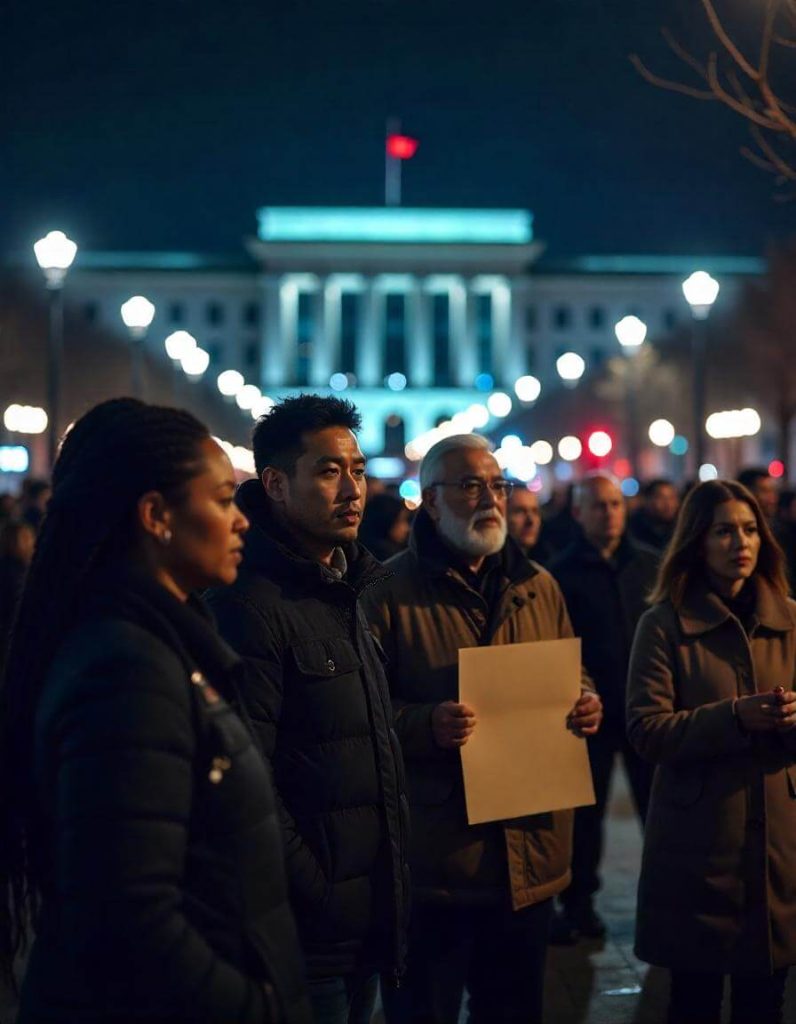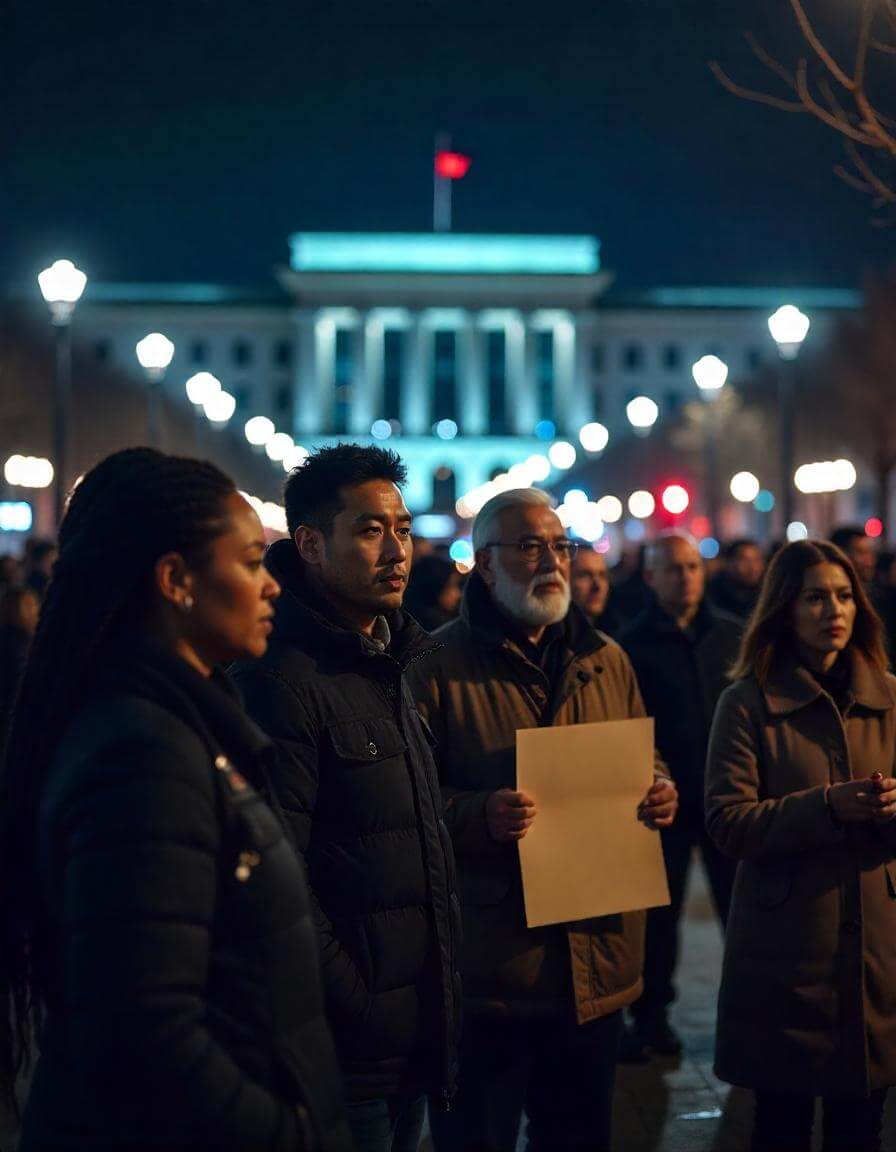South Korea is in the midst of political conflict with opposition against President Yoon Suk Yeol to impose martial law in the first place and then walk back on it suggesting that he has no faith in the nation. This has been called a rather astonishing change of mind and it has fueled conversations about the level of citizens’ trust in their state institutions, as well the strength of democratic processes in the country. As the lawmakers who are trying to impeach Yoon ponder the crisis, they wonder how the bond will hold in the future, and whether the government will be stable.
Martial Law: definition
Martial law is best defined as the situation whereby a designated military group rules the country with specific regards to law and order. It is normally declared during extreme political instability, warfare, natural calamity, or civil unrest if the ordinary citizens in government are incapable of delivering order, it tries to ensure the enforcement of order: Martial law is state dominance rule where order is maintained by armed forces, leading to the affixing of order: It states that orders from suitable officers in the military supersede all laws that are civil within the area of victory.
With nature and the threat of war constantly looming, March 21 elicits memories of darker times where soldiers were fairly normal living among the other citizens in Korea, the today words ‘Martial law’ across the border are associated with criticism of freedoms of active members running a democracy: governments across the world at encroachments.
Proposition of Martial Law by Yoon Suk Yeol
On the back of widespread protests led by Koreans against the sitting government, a frustrated Yoon X proposed that the “Marital law be implemented” Yoon should understand such statements are naïve, everyone is highly greatly and should act in such a way based on anger built around lots of protests.
Critics responded by claiming that the choice is imposing an authoritarian outlook and is excessive in natures.
Opposition leaders, leaders of civil rights movements, and other international actors have also been raised strong objections against Yoon’s announcement. Cloaked in national security, they accused him of systematically dismantling democratic structures and attempting to centralize power. Public anger began immediately and protests erupted in major cities.
The U-turn and the implications
Faced with a lot of pressure, President Yoon came out and changed his stance claiming that martial law will not be imposed. The irony was however the aim to address the conflicts only served to compound the crisis. Critics argue that both the original proposal as well as its subsequent withdrawal demonstrate a poor sense of judgement and planning and a lack of confidence in the leadership of Yoon.
Party legislators of the opposition have moved with speed to seize the moment to push for the extending Yoon’s impeachment. They argue that the very suggestion is a gross misuse of executive power and that the rapid turnaround is even more telling in the increasing disorder in the government. The controversy has also further deepened the already wide divide between the Yoon administration and his political opponent further making the business of governance more difficult.
Public Commentary
The South Korean public has taken the controversies surrounding the martial law with a lot of emotion and has been quick to respond by taking to the streets in massive demonstrations aimed at showing their discomfort with Yoon.
For many: particularly in a country that has historically been careful in terms of reverting back to authoritarianism, the plan appears to be a dangerous regression.
Yoon’s government has repeatedly been accused of using martial law as an excuse to quiet dissenting voices further infuriating the public. Even after the repeal, trust within the populace still is low as several believe the British government is incapable of addressing crises maturely.
Effects on South Korea’s Democracy The issue of martial law is a very sensitive one within the democratic framework of South Korea and therefore has important considerations:
Overreach in Executives: Yoon’s proclivity to suggest that martial law would be an option for him and the executive branch raises issues of uncontrollable reach, which the critics claim has been the case. More powerful checks and balances are now demanded in order to prevent such abuse from happening in the future.
Public faith: The incident has eroded public confidence in the state apparatus since there was the worry amongst citizens on their ability to vote, and other democratic freedoms suffering in times of turbulence.
Historical analogues: The allure of imposition of martial law has come with memories of the darkest times of South Korea and her authoritarianism that continue with the current debates of the need to protect the democratic advancement.
Push for Impeachment and Political anarchy The ongoing impeachment efforts directed at Yoon has also fueled the political unrest.
Even as his advocates argue that the turnabout demonstrates his willingness to heed public’s sentiments, opposition lawmakers level accusations against him for non adherence to constitutional norms. Probably, in the next few weeks, this political deadlock will take centre stage in South Korea’s agenda, postponing vital reforms and policy decisions.
So should impeachment processes begin, this is likely to polarize the country even further. Whether Yoon is kept in his position or not, whether Yoon keeps his position or is removed from office, either way, this decision will have profound ramifications on the political landscape of South Korea.

As it resolves the issues related to the debate surrounding martial law,
South Korea at the moment is in a situation of indecisiveness. Important events worth observing include:
Impeachment hearings have begun — Where does that leave South Korea. If opposition MPs get enough backing, then the official processes for the impeachment of Yoon can begin, thus commencing a long drawn political wilderness.
As the populace demands accountability and a paradigm shift so that the same does not recur, protests are most likely going to prolong.
Institutional Reforms: The argument has accentuated the fact that such occasions should not occur again, therefore there is need for stronger measures in place so that the maintenance of democratic principles is not compromised even during times of trouble.
The political endemic of the proposition of martial law by Yoon Suk Yeol and the subsequent backing down when it is too late, points to the vulnerability of democratic practices and democratic institutions, even in South Korea.
.nanowrimo.org/[discuss-in-group/] [[email protected]] The question What is Martial Law has a much Star Wars quote inherent meaning which people really need sense in today’s time as well as.
As the legislative, civilian, and political leadership faces this challenge, the state tries its strength to defend its core democratic values and constitutional supremacy.
The people of South Korea’s democracy should learn from the crisis in terms of how it will be resolved and what must be done to maintain the proper alertness, responsibility, and division of power among government institutions. How a nation approaches and overcomes these challenges will determine how resilient and cohesive the society becomes in the future.
If you are interested for more: December 4, 2024: Political Turmoil in South Korea: Understanding Martial Law and the Fallout from Yoon Suk Yeol’s U-Turn” “Meet Avadh Ojha: UPSC Educator, YouTuber, and AAP’s New Delhi Ticket Hopeful”

